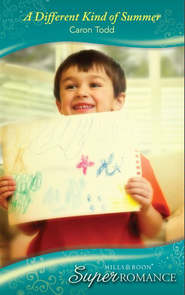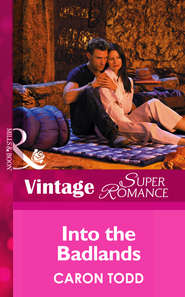По всем вопросам обращайтесь на: info@litportal.ru
(©) 2003-2024.
✖
The House on Creek Road
Автор
Год написания книги
2018
Настройки чтения
Размер шрифта
Высота строк
Поля
Stephen nodded grudgingly.
She started by drawing a series of small squares. Inside one, using the first idea that came to mind, she sketched a man wearing jeans and a button-up shirt. She rolled up his sleeves to show he was hard at work. Inside the next square, the man crouched down, putting something small and oval into a concave spot in the ground.
“A guy planting seeds,” Stephen said.
The boy next to Stephen was watching, too. Liz had to think for a moment to remember his name. Jeremy. He was smaller than the other children, enough that he looked two or three years younger. “Hey, that’s Mr. McKinnon, isn’t it? My dad worked with him in the summer. Planting and stuff.”
“Your dad works all over the place,” Stephen said. “Odd jobs.”
Liz noticed a slight, protective recoil from Jeremy. “Good for him. That means he knows how to do all kinds of things.” The boy’s small body relaxed.
Tiny leaves unfurled in a third square, grew bigger in a fourth and snaked all across a fifth. Small fruit with vertical ridges appeared on the vines.
“Pumpkins,” Stephen said.
Finally Liz drew long-fingered hands carrying a large pumpkin, and the same hands pushing a knife through its shell.
Stephen leaned in. “Can I do that?” Pressing heavily on his pencil, he drew a pair of triangular eyes, a matching nose, and a crooked sharp-toothed grin. He smiled at the result, but Liz could see his interest was fading fast.
“I’ve never been a pumpkin farmer,” she said, “but I know what pumpkins look like and I know how to plant a garden—”
She could see when his idea hit. Stephen reached eagerly for a fresh piece of paper. “I’ll make a book about winning the Stanley Cup! I know what the rink looks like and the goalie and the uniforms—”
Jennifer muttered, “The refs, the penalty box—”
“I know what the Cup looks like, and I know what it feels like when you win.” He sat forward, feet tucked around the front legs of his chair. At the top of the paper, he wrote Chapter One and underlined it three times. He thought for a few moments, then added, by Stephen Cook, Three Creeks Elementary, Grade Five. This was underlined twice. Liz waited, but no thumbnail-size squares followed. Not even two thumbnail-size squares. He indented and began to write. My team made it to the play-offs…
He was out of his seat, she was sure, a fraction of a second before the lunch-hour bell rang. Faster than they would have for a fire drill, the children emptied the classroom.
JACK PULLED THE BOOK he’d just bought out of its bag. It was tall and wide, so he rested it against his truck’s steering wheel and slowly turned the pages, sometimes smiling at the illustrations, until he found the verse he wanted.
Peter, Peter, pumpkin eater…
Strange to hear a grown woman quoting a nursery rhyme as seriously as if it were Shakespeare.
Had a wife and couldn’t keep her, put her in a pumpkin shell, and there he kept her very well…
Nonsense, he would have thought, the kind of rhythmic nonsense children enjoyed. Could it mean something, as Liz had suggested? What was a pumpkin eater, anyway? He’d heard of potato eaters. It was a derisive term for the poor during the 1800s, for anyone who couldn’t afford better food. Were pumpkins common when the rhyme came to be, or a rare luxury?
Peter put his wife in a pumpkin shell—in fact, he couldn’t keep her until he put her there. Did the shell represent a nice house, and was the wife unwilling to stay with him until then? She cared more for possessions than for love? Maybe he should pay more attention to the phrase couldn’t keep her. The pumpkin might be the back alley cardboard box of its day. It was the best Peter could do, but they were happy.
Or did it suggest a prison, maybe the Tower of London? Was Peter a well-known person, the Lord Mayor, or a king, with a wife who tended to stray? And why was any of that appropriate reading for children?
Jack slipped the book back into its bag and tucked it under the seat. Plenty of time to think about it during the drive home. He couldn’t tell Ned he was late for lunch because he was reading nursery rhymes. Ned already thought he was crazy.
He locked the doors of his truck and walked out of the shopping center parkade onto Princess Avenue. Lunch-hour traffic crowded the usually quiet street. As much as he loved walking through the countryside, the only human in sight or hearing, it was a nice change to see hurrying men with briefcases, mothers pushing strollers, teenagers laughing and jostling each other, certain all eyes were on them.
Brandon University was only eight blocks away, welcome exercise after the drive from Three Creeks. It stretched along 18th Street like the city’s centerpiece. Two beige brick buildings from the late nineteenth century were flanked by newer ones, including the Brodie Building, a glass and cement structure that housed the science faculty. The math and computer science department was on the first floor. Jack strode along, checking nameplates on doors until he finally saw Dr. Edward Hardy. Voices came through the open door.
“…and it runs in linear time,” a young-sounding voice finished. “So you can’t say all sorts run in Omega-n-log-n time.”
Вы ознакомились с фрагментом книги.
Приобретайте полный текст книги у нашего партнера:
Приобретайте полный текст книги у нашего партнера:









